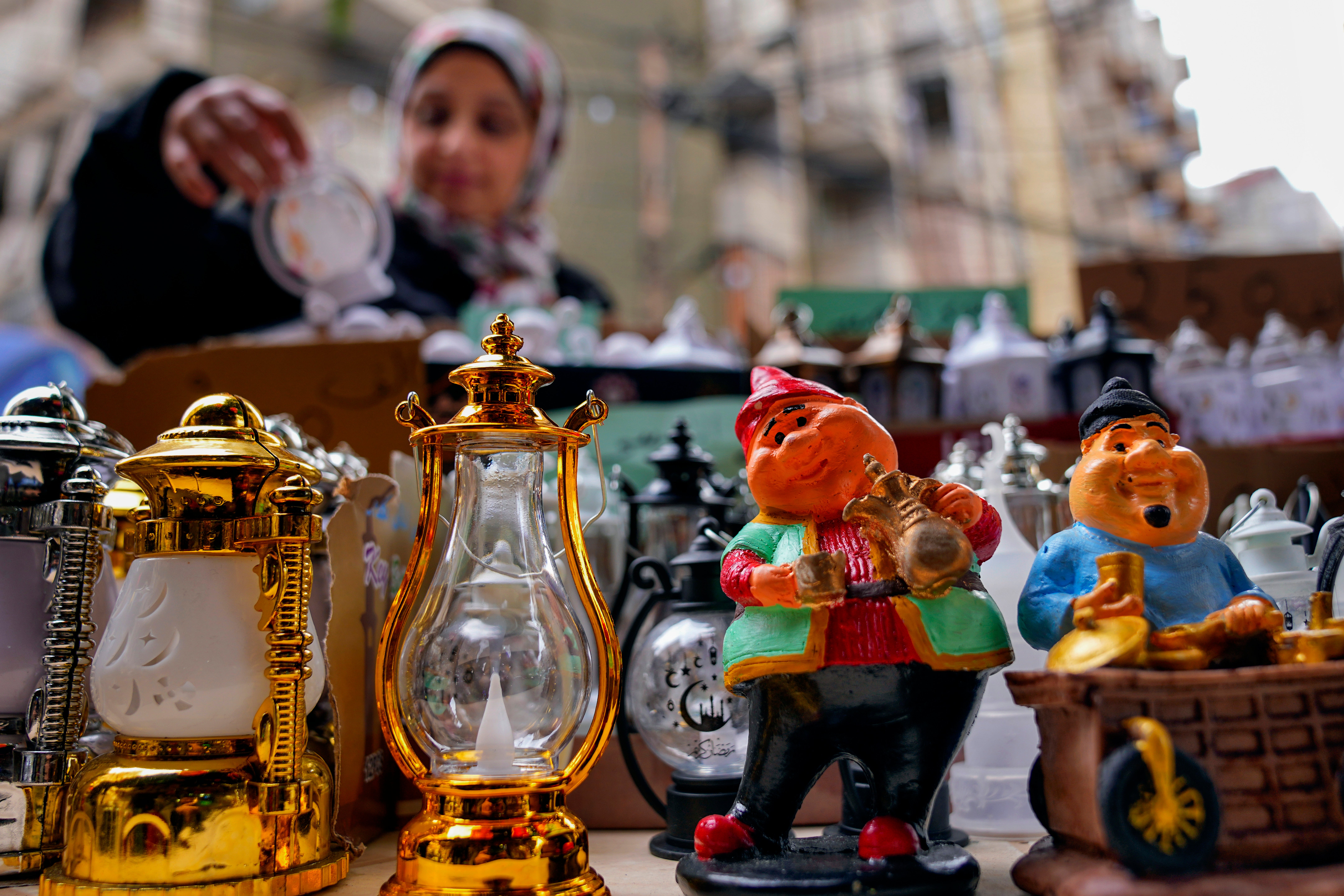Muslims spot Ramadan crescent moon in Saudi Arabia
Ramadan is the ninth month of the Islamic lunar calendar
Your support helps us to tell the story
From reproductive rights to climate change to Big Tech, The Independent is on the ground when the story is developing. Whether it's investigating the financials of Elon Musk's pro-Trump PAC or producing our latest documentary, 'The A Word', which shines a light on the American women fighting for reproductive rights, we know how important it is to parse out the facts from the messaging.
At such a critical moment in US history, we need reporters on the ground. Your donation allows us to keep sending journalists to speak to both sides of the story.
The Independent is trusted by Americans across the entire political spectrum. And unlike many other quality news outlets, we choose not to lock Americans out of our reporting and analysis with paywalls. We believe quality journalism should be available to everyone, paid for by those who can afford it.
Your support makes all the difference.Officials saw the crescent moon Sunday night in Saudi Arabia, home to the holiest sites in Islam, marking the start of the holy fasting month of Ramadan for many of the world's 1.8 billion Muslims.
The sacred month, which sees those observing abstain from food and water from dawn to sunset, marks a period of religious reflection, family get-togethers and giving across the Muslim world. Seeing the moon Sunday night means Monday is the first day of the fast.
Saudi state television reported authorities there saw the crescent moon.
However, there are some Asian countries, like Australia, Brunei, Indonesia, Malaysia and Singapore, that will begin Ramadan on Tuesday after failing to see the crescent moon.
This year's Ramadan comes as the Middle East remains inflamed by Israel's ongoing war against Hamas in the Gaza Strip. That's raised fears that the conflict may spark unrest far beyond the current borders of the war. Meanwhile, inflation and high prices of food around the world since the pandemic continue to pinch

In Saudi Arabia, the kingdom had been urging the public to watch the skies from Sunday night in preparation for the sighting of the crescent moon. Ramadan works on a lunar calendar and moon-sighting methodologies often vary between countries, meaning some nations declare the start of the month earlier or later.
However, many Sunni-dominated nations in the Middle East follow the lead of Saudi Arabia, home to Mecca and its cube-shaped Kaaba that Muslims pray toward five times a day.
In Iran, which views itself as the worldwide leader of Islam's minority branch Shiites, authorities typically begin Ramadan a day after Sunnis start.
During Ramadan, those observing typically break their fast with a date and water, following the tradition set by the Prophet Muhammad. Then they'll enjoy an “iftar,” or a large meal. They'll have a pre-dawn meal, or “suhoor,” to sustain themselves during the daylight hours.
Ramadan is the ninth month of the Islamic lunar calendar; the month cycles through the seasons and the months in the Gregorian calendar.
Muslims try to avoid conflict and focus on acts of charity during the holy month. However, the war in the Gaza Strip is looming large over this year's Ramadan for many Muslims.
The war began Oct. 7 with Hamas' attack on Israel that killed some 1,200 people and saw 250 others taken hostage. Israel responded with a grinding war targeting the Gaza Strip that so far has seen over 30,000 Palestinians killed and an intense siege of the seaside enclave cutting off electricity, food and water.
Scenes of Palestinians praying before bombed-out mosques and chasing after food airdropped by foreign nations continue to anger those across the Middle East and the wider world. The U.S. has been pressuring Israel, which relies on American military hardware and support, to allow more food in as Ramadan begins. It also plans a sea corridor with other partners.
The war, as well as Israeli restrictions on Muslims praying at Jerusalem's Al-Aqsa Mosque, Islam’s third-holiest site, may further inflame militant anger. The site is also known as the Temple Mount, which Jews consider their most sacred site.
The Islamic State group, which once held a self-described caliphate across territory in Iraq and Syria, has launched attacks around Ramadan as well. Though now splintered, the group has tried to capitalize on the Israel-Hamas war to raise its profile.
War also continues to rage across Sudan despite efforts to try and reach a Ramadan cease-fire.